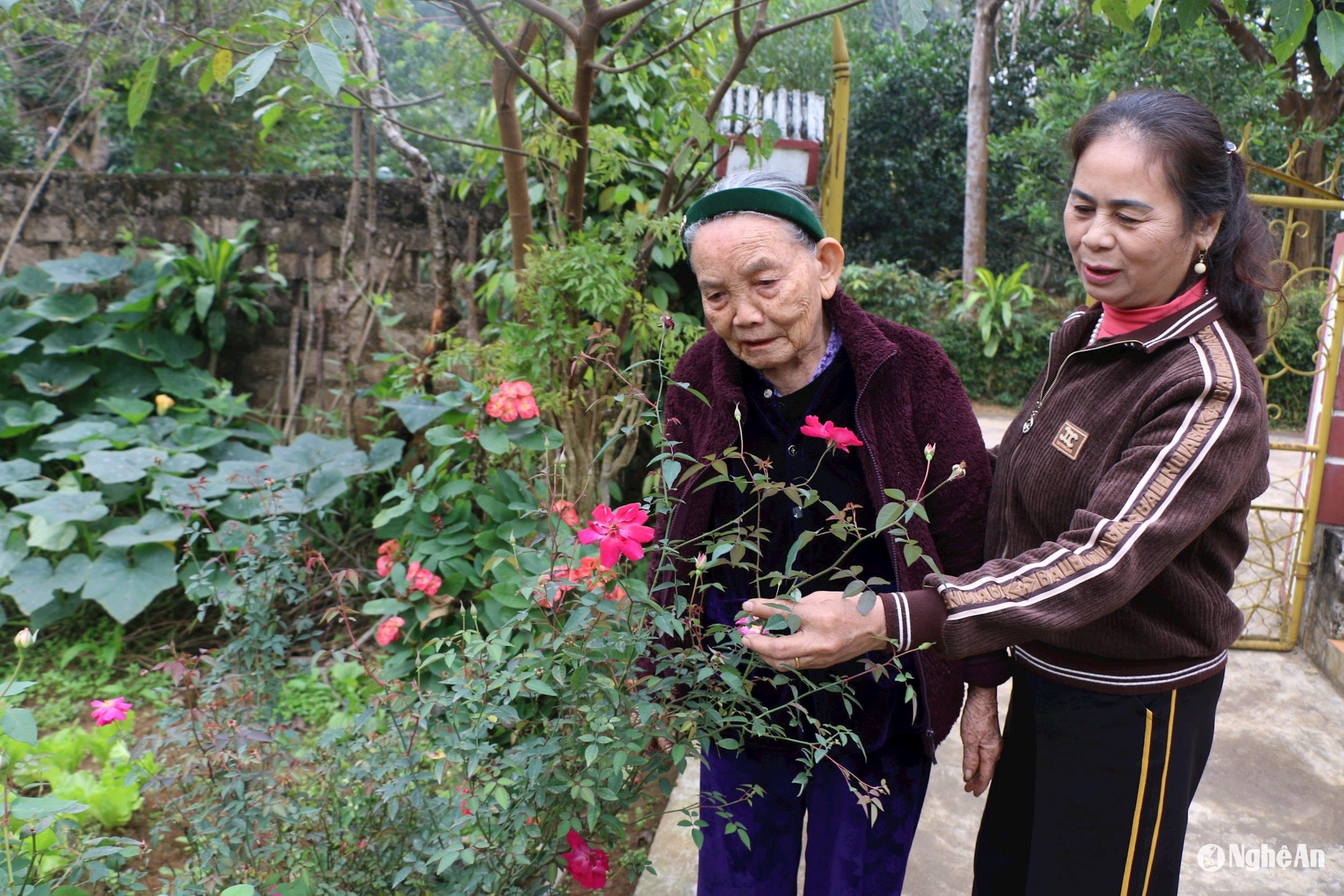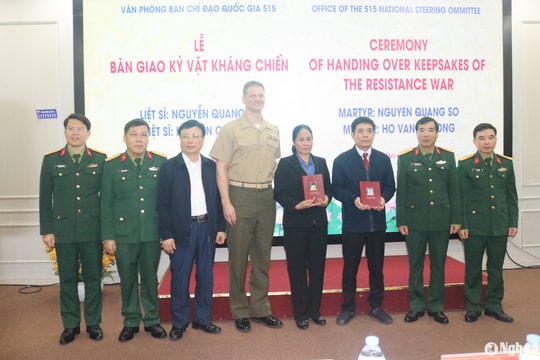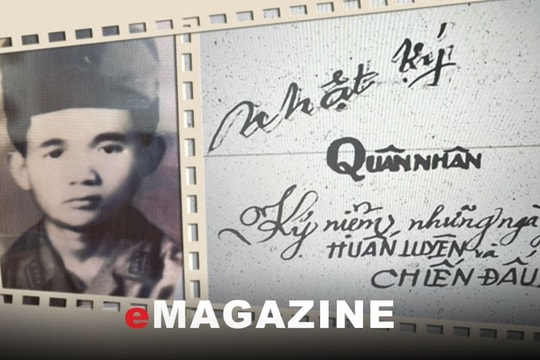The miraculous return of the Martyr's Diary and the message "Peaceful Fatherland, Happy Family"
These days of December, the small house with its lush green vegetable garden and fragrant rose bushes - where Mrs. Bui Thi Loi (wife of martyr Ho Van Chuong) lives with her eldest son's family - is filled with joy. Because after 60 years of wandering on the other side of the world, the war diary - a priceless keepsake of her beloved husband and father who fell on the Quang Tri battlefield - suddenly returned to her loved ones like a miracle...
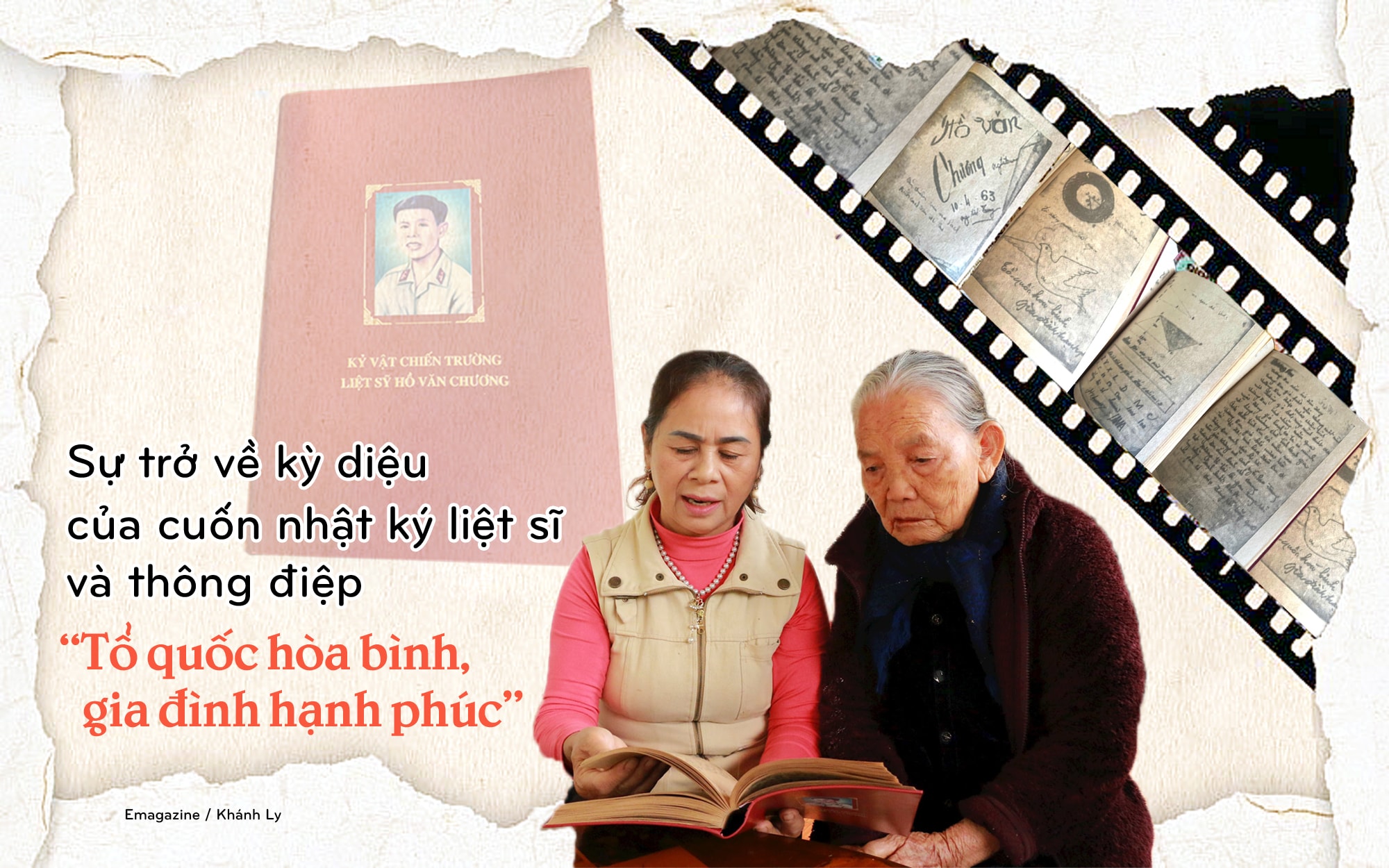
These days of December, the small house with its lush green vegetable garden and fragrant rose bushes - where Mrs. Bui Thi Loi (wife of martyr Ho Van Chuong) lives with her eldest son's family - is filled with joy. Because after 60 years of wandering on the other side of the world, the war diary - a priceless keepsake of her beloved husband and father who fell on the Quang Tri battlefield - suddenly returned to her loved ones like a miracle...

This year, at a rare age, Mrs. Bui Thi Loi (born in 1939), residing in Thai Hoa town, is still very active and alert. Talking to us, holding the diary of her beloved husband, which was just handed over to her family by the Office of the National Steering Committee 515 at the end of the year, Mrs. Loi reminisced about her youthful days.
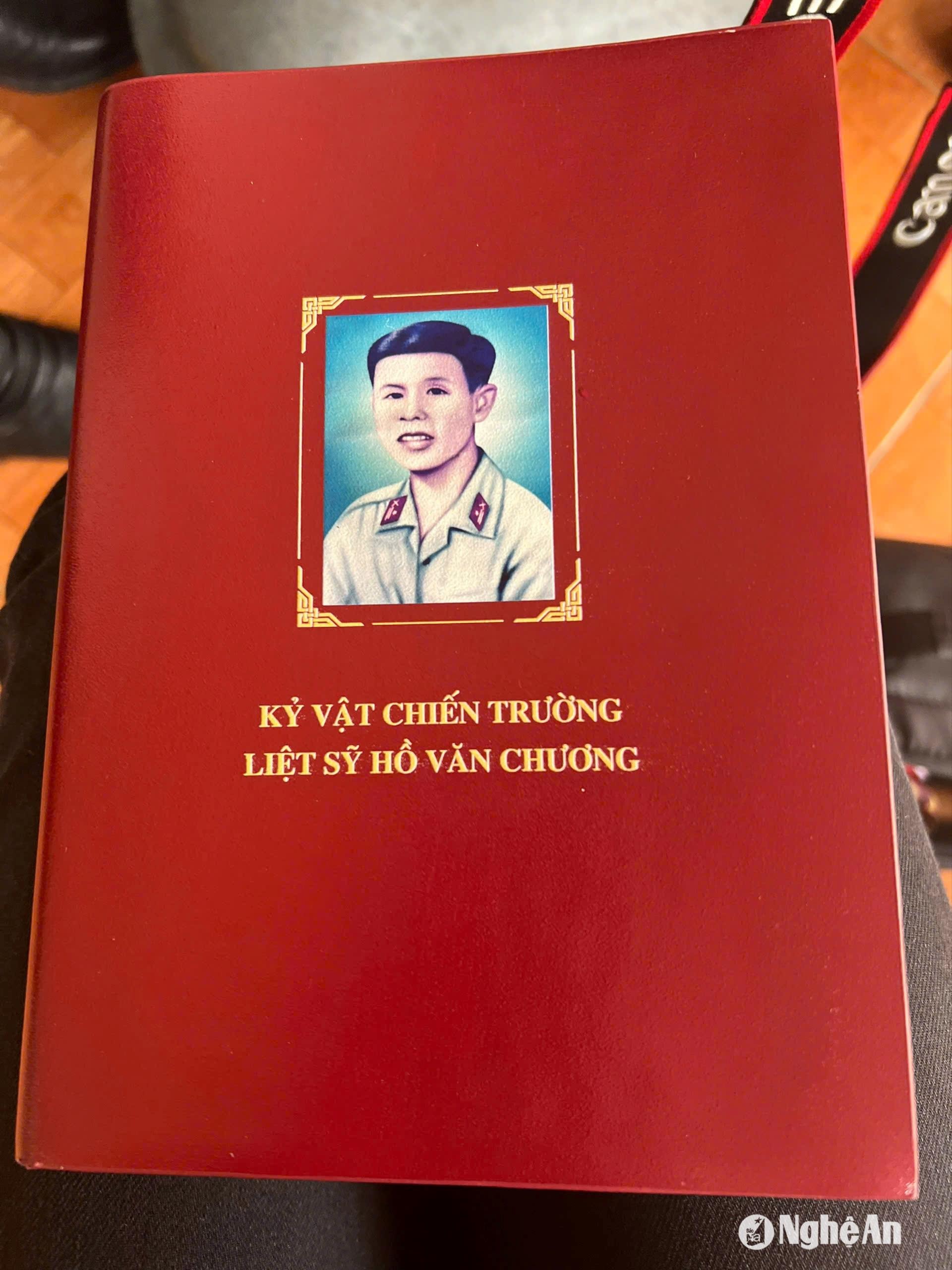
Born and raised in Trung Tam hamlet, Dien Bich commune, Dien Chau district, in 1960, coastal girl Bui Thi Loi and fisherman Ho Van Chuong met and got married. At that time, she was just 20 years old and he was 21.
Although life was still difficult, it was complete and happy when his son Ho Van Hung was born. In April 1963, when his second son Ho Van Quang was 3 months old, Mr. Ho Van Chuong enlisted in the 4th Company, 7th Battalion, 90th Regiment, 324th Division in Do Luong district.
“I was so naive back then. My husband was in the army, but I just held the baby and stood at the door, embarrassed, unable to say anything…”, Mrs. Loi sadly recalled.
During the time his unit was stationed in Do Luong, although the unit was about 50km away from home, he strictly followed military discipline and never returned home to visit. Loving her husband and knowing that Mr. Chuong did not like to eat meat, Mrs. Loi quietly cooked sea fish and asked an acquaintance to bring it to her husband's unit.
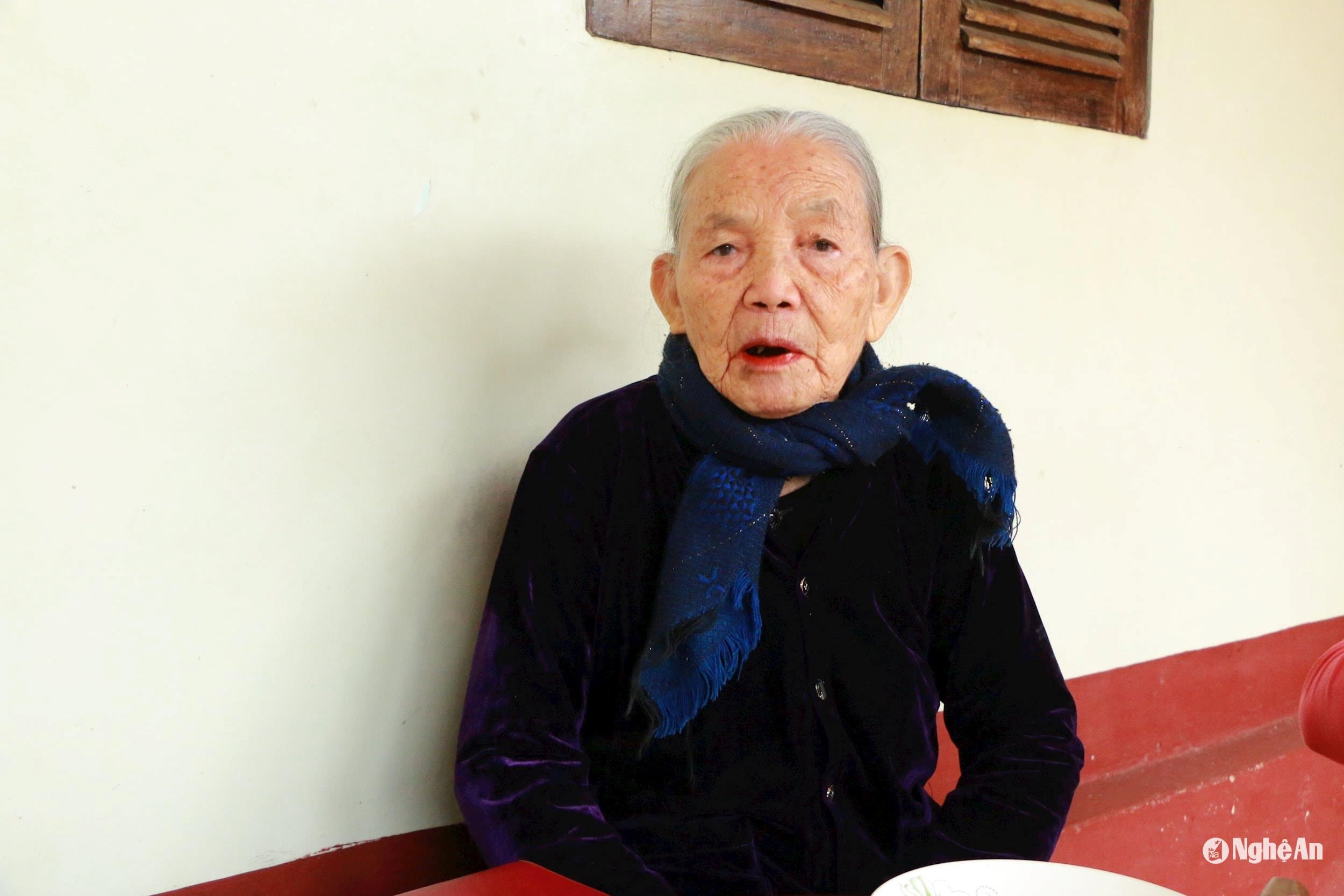
In 1964, Mr. Chuong was injured and transferred to Vinh city for treatment. Before returning to his unit, he asked to visit home once. Before leaving, he hesitantly told his wife, "If I have to sacrifice myself, don't marry someone else, it's a sin for our children." At that time, she brushed it off and encouraged her husband not to think too much.
Some time later, his unit marched into Quang Tri. Between life and death, he sent many letters to his wife, but Mrs. Loi was illiterate and could only ask her nephew to read them to her, unable to write back to her husband.
Each letter her husband sent to Mrs. Loi was a message of peace that made her feel secure. “Although his family’s circumstances were difficult, he was the eldest of nine children and only finished secondary school, but he wrote well and had beautiful handwriting, and everyone praised him,” Mrs. Loi shared proudly.
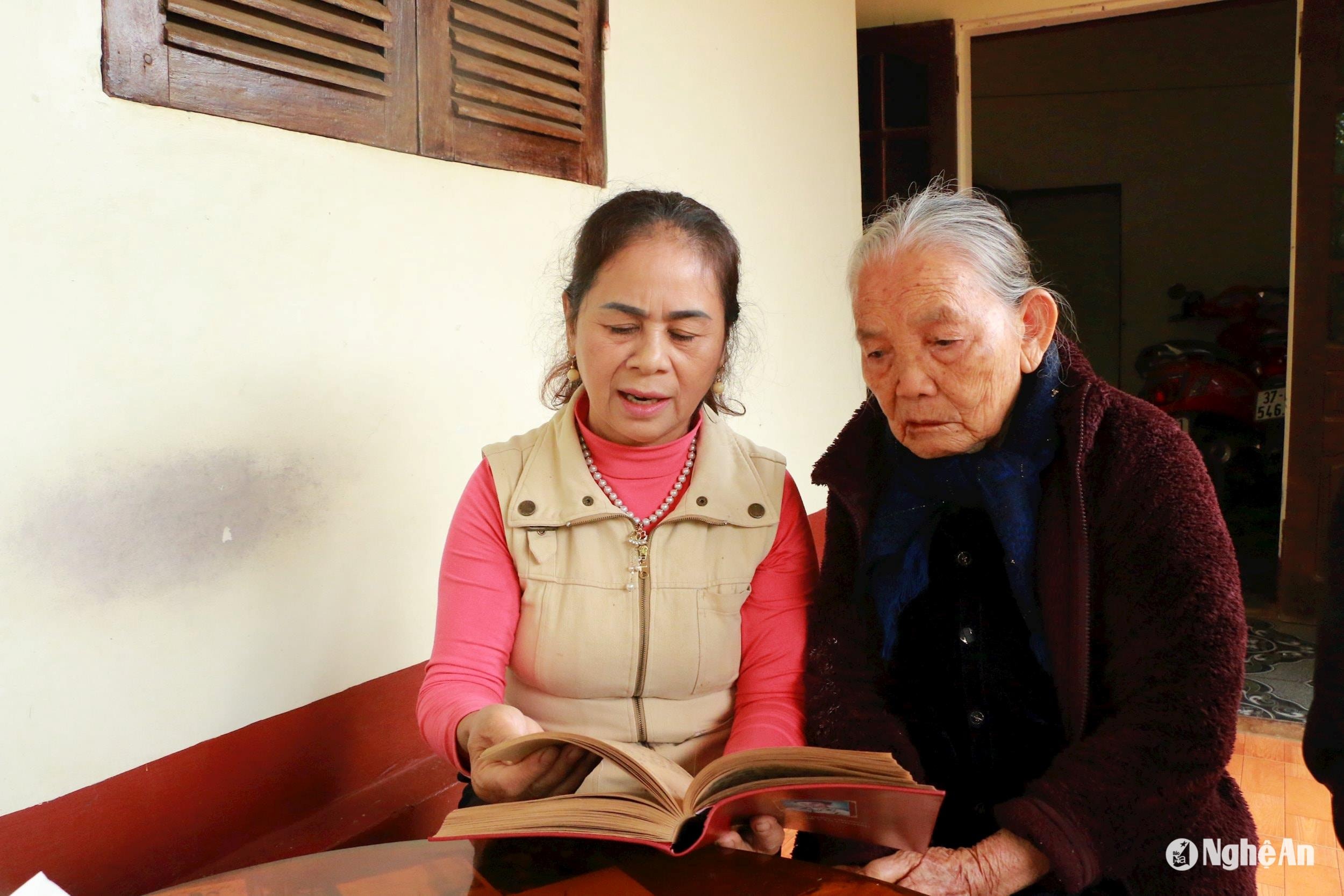
In 1967, Mrs. Loi received the news that her husband had died in the Quang Tri battlefield. The death certificate stated that martyr Ho Van Chuong had died on October 19, 1966, a year earlier. The pain made the young wife collapse, but out of love for her two young children, she still tried to stand up and take on the responsibility of raising them on her husband's behalf.
Those years were incredibly hard, with a shoulder pole on her shoulder, rushing to sell fish, wandering from dawn to dusk, but the woman from the fishing village was still very resilient, keeping her duties as a daughter-in-law, wife, and mother. “During the war, there were times when my mother and I had to follow our relatives to evacuate, one carrying the baby on one end, the other carrying rice, clothes, blankets, and holding the older child by the hand…”, Mrs. Loi recalled.
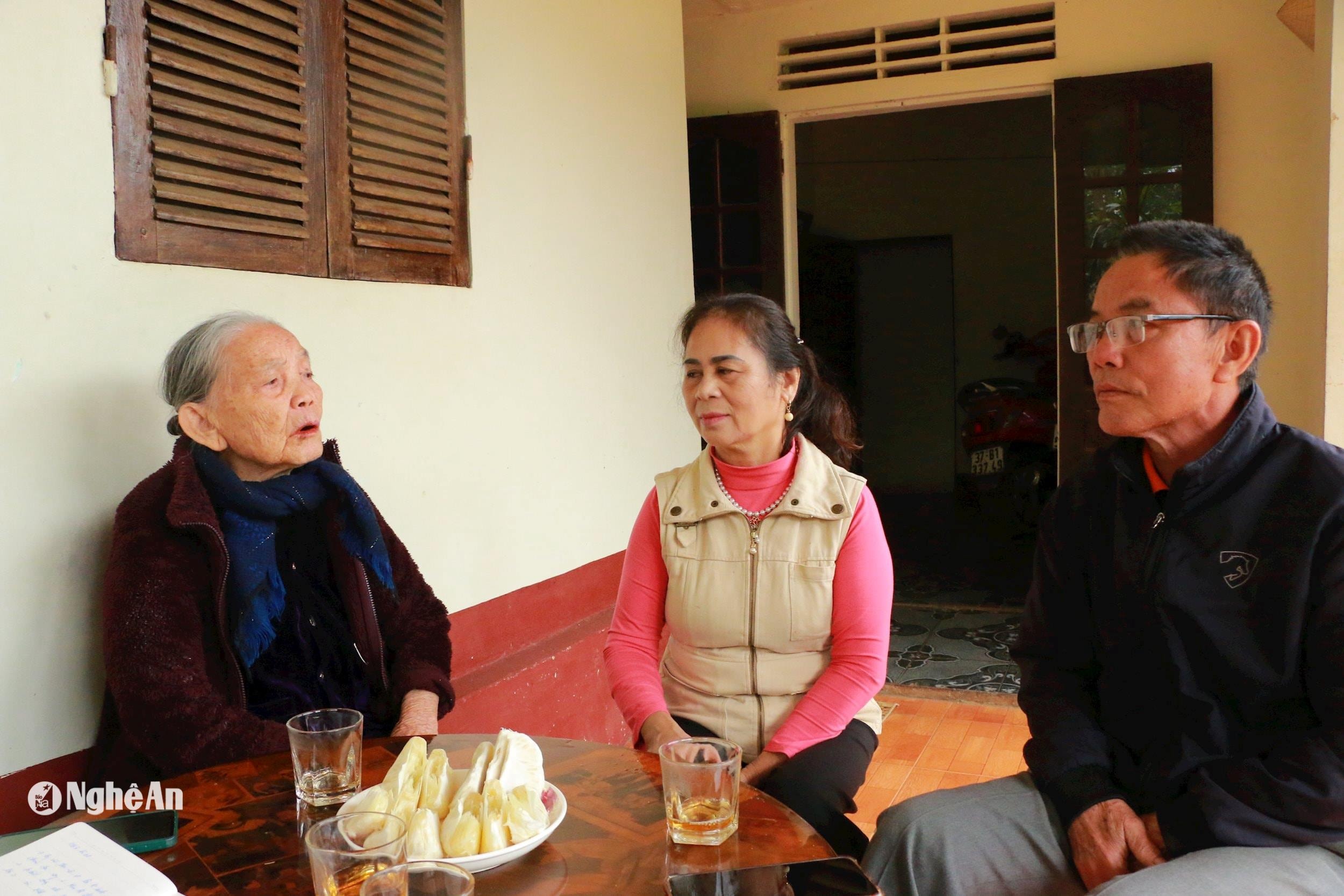
The hardships and worries of life could not hide the attractive appearance of a young woman from the fishing village. Mrs. Loi was proposed to by many people, but because of her love for her children and her faithful love for her husband who had fallen on the battlefield, she firmly refused, overcame the ups and downs, stayed single to worship her husband, and raised her two sons to adulthood.
Talking to us, Mrs. Loi hummed some emotional self-reflective verses.I'm so heartbroken, my child/ I can't go, I'll sit with you/ After so many years, we've had a happy life/ I've had to stay single to raise my children, serve my husband... I'll live as I am and die as I am, just once...".
Mrs. Loi's biggest regret is that due to war, evacuation, storms and floods, all of her husband's letters, certificates of merit, and mementos were lost.
Therefore, when receiving the war diary of martyr Ho Van Chuong, who had been wandering for more than 60 years on the other side of the world, back with his family, Mrs. Loi and her children were very moved, considering it a priceless keepsake; a miracle.
Because before that, she and her relatives did not know about the existence of this diary. "His sacred soul wants to return to reunite with me and his children and grandchildren...", Mrs. Loi said tearfully, her wrinkled hands turning each page of the diary that has faded over time...
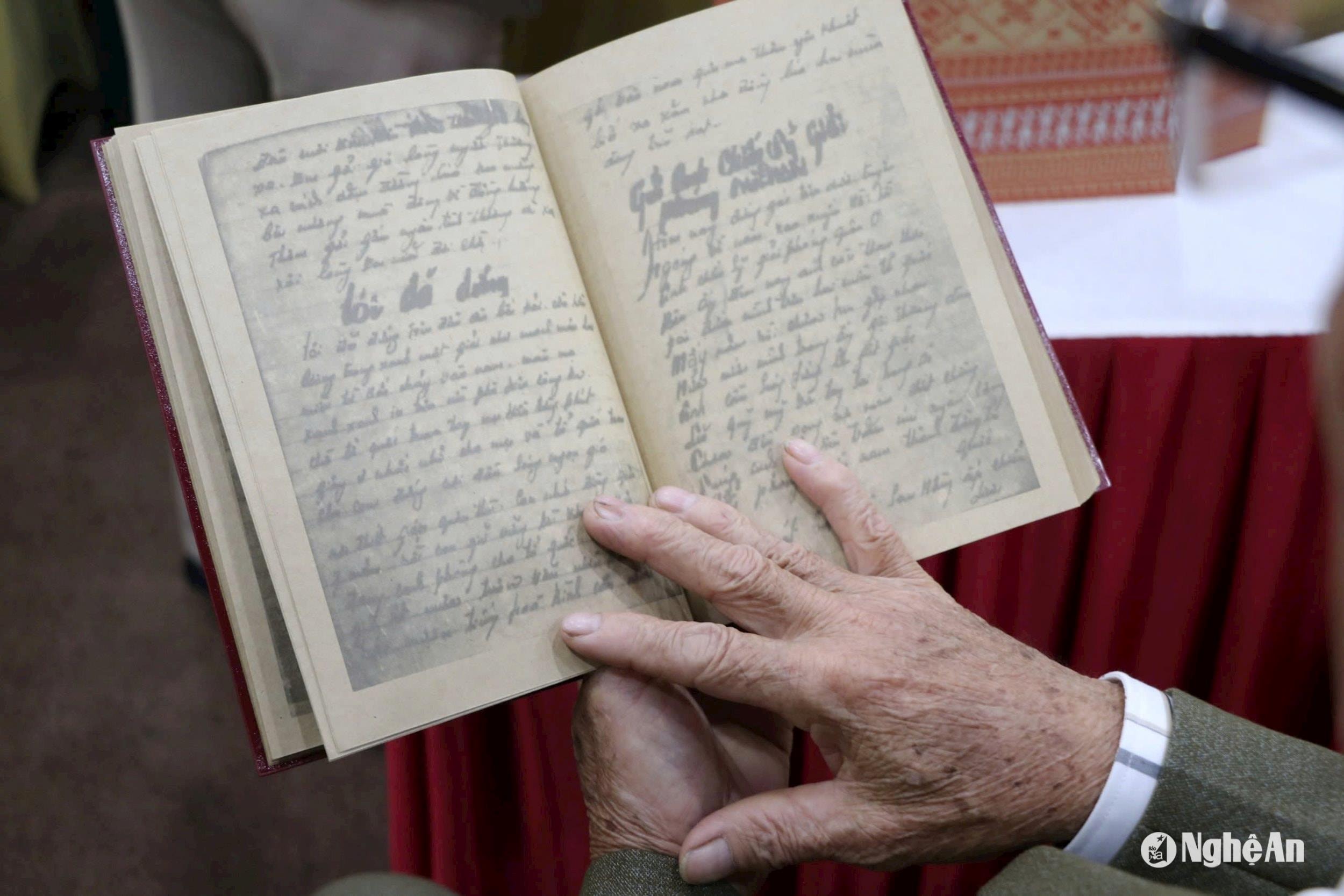

Sitting quietly next to his mother, Mr. Ho Van Hung - the eldest son of martyr Ho Van Chuong emotionally shared: "My mother raised us alone, dedicating her whole life to making up for the emotional loss my siblings and I felt when our father was absent."
In 1989, after leaving his hometown Dien Chau to work in Thai Hoa town, getting married and settling down, Mr. Hung brought his mother from Dien Chau to live, while his younger brother - Ho Van Quang started a business in Da Nang.
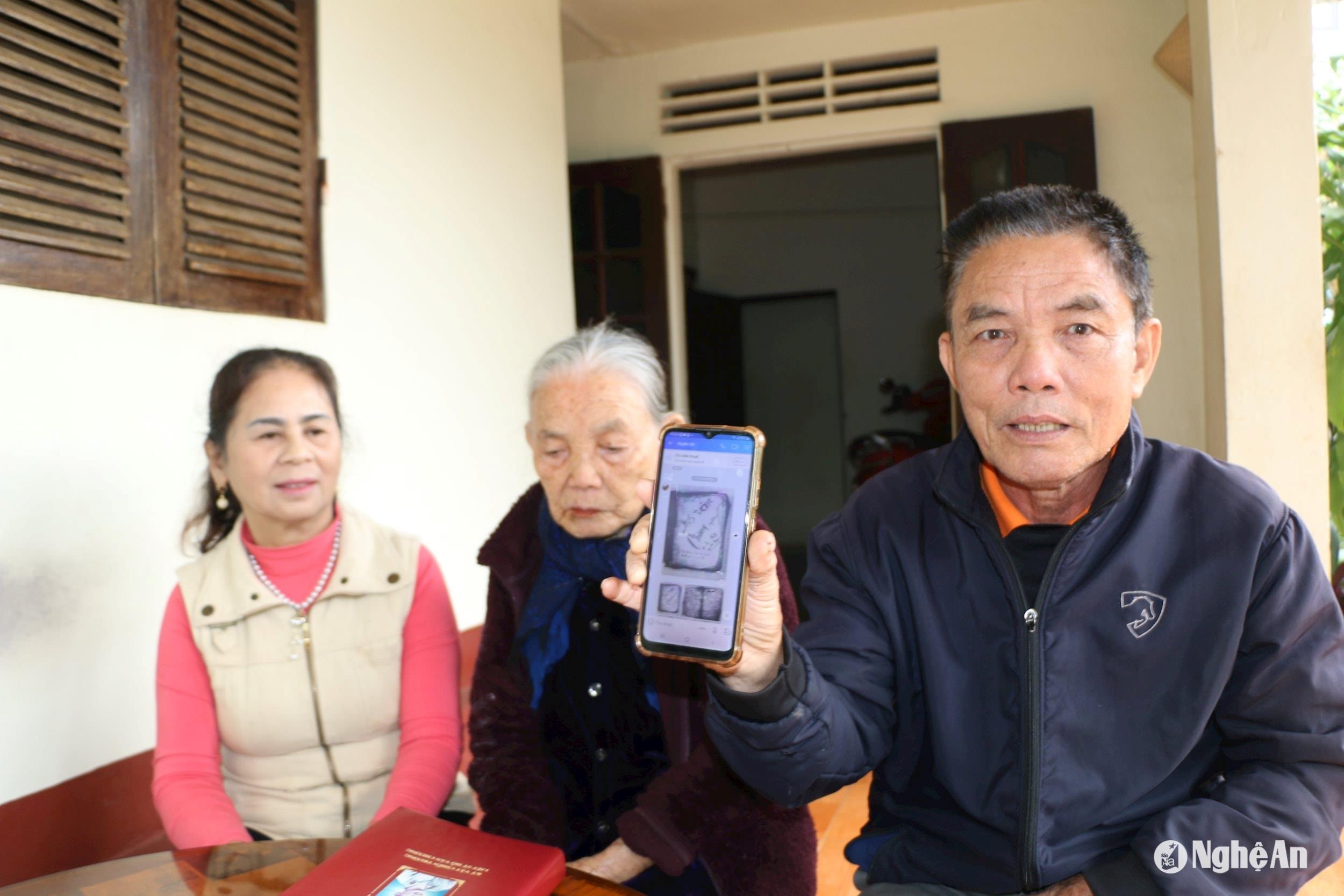
Talking about the miraculous return of his father's diary, Mr. Hung said that one day in September 2024, he suddenly received a phone call introducing himself as someone from the ASH Center of Harvard University (USA), who was keeping a diary named Ho Van Chuong and wanted to collect more information to accurately identify it to hand over to relatives.
This diary was captured by a unit of the US 3rd Marine Command on October 18, 1966, after a clash with the Vietnamese Liberation Army at a fighting site in Gio An commune, Gio Linh district, Quang Tri province. Through Zalo, the other side provided Mr. Hung with some pages of the diary.
.jpg)
Upon receiving the information, Mr. Hung was both happy and worried, mixed with excitement because “if it is really my father’s diary, it is a priceless keepsake with special meaning; it is a great source of encouragement and comfort for the family, especially for our mother who is at a rare age, but if it is a mistake, it will only be disappointment and sorrow…”. Therefore, when he could not determine the exact cause, he did not dare to inform his mother immediately but told his daughter to verify it.
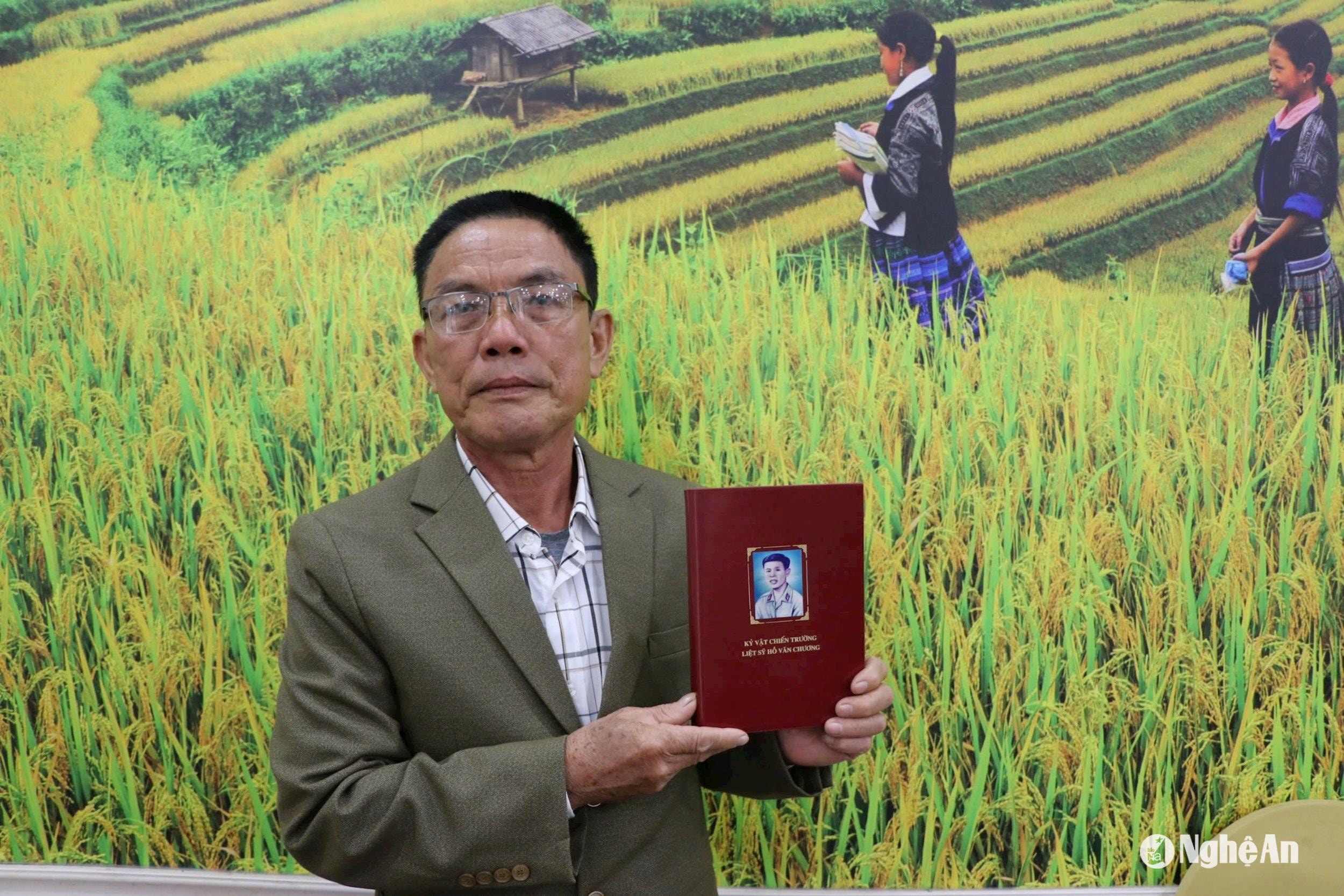
The information provided shows that the diary owner is named Ho Van Chuong, enlisted on April 10, 1963, hometown is Trung Tam hamlet, Dien Binh or Dien Bich commune, Dien Chau district, Nghe An province. However, through the family's investigation, Dien Binh commune has never had a hamlet named Trung Tam hamlet, and Trung Tam hamlet, in Dien Bich commune, has martyr Ho Van Chuong, Mr. Hung's father, matching the name and enlistment date as the information in the diary. "They also sent my family more than 10 diary pages via Zalo, mainly pages that my father wrote for his wife," Mr. Hung said.
Combining many other reliable verification sources from the Ministry of National Defense, the Military Command of Nghe An province..., the ASH Center (Harvard University) affirmed that the above diary belongs to martyr Ho Van Chuong - Mr. Hung's father.
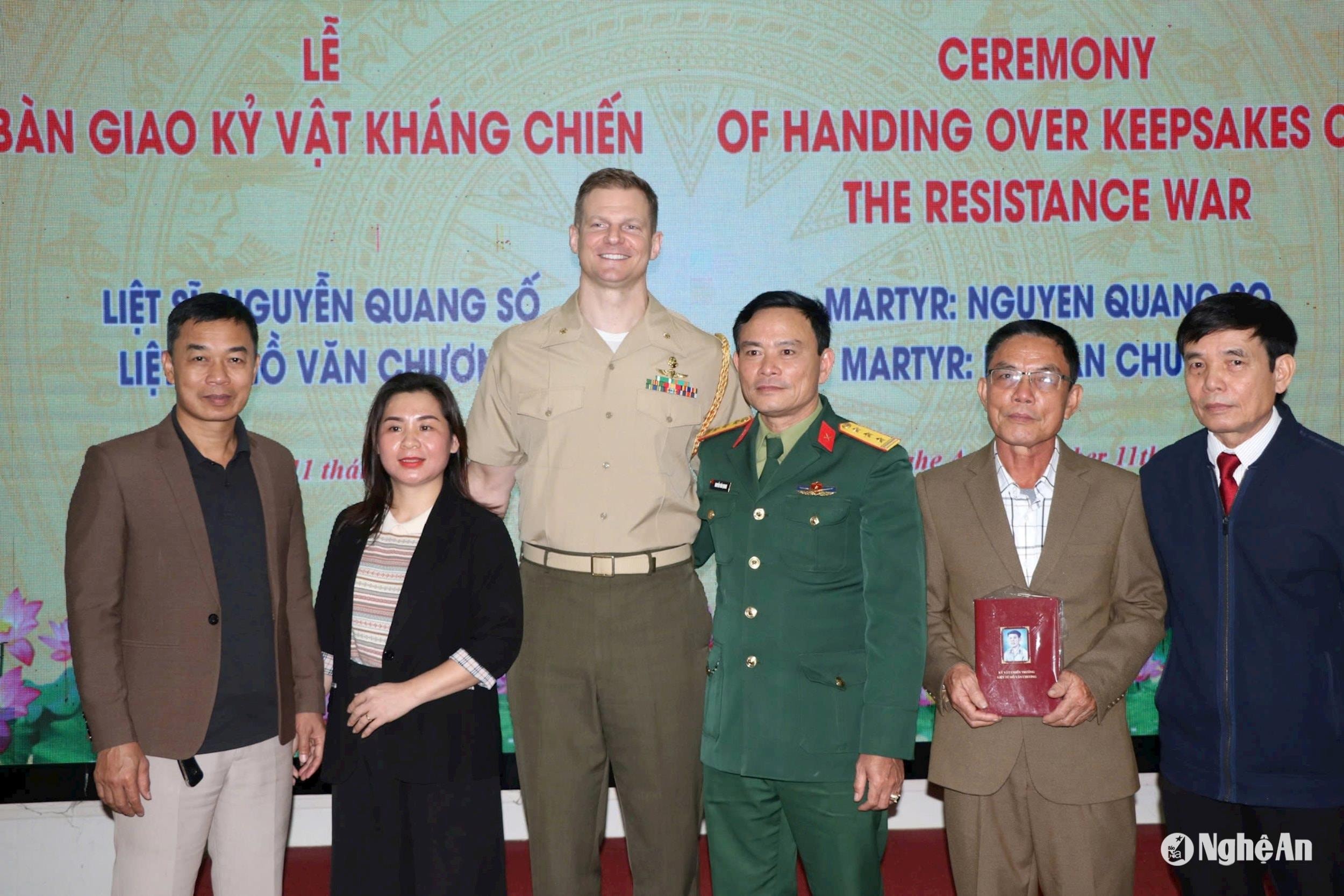
After 4 months of waiting, on the morning of December 11, 2024, Mr. Hung and his younger brother Ho Van Quang were present in Vinh city to receive the restored diary of his martyr father from representatives of the US Embassy in Vietnam, the ASH Center and the Steering Committee for searching, collecting and identifying the remains of martyrs in Nghe An province.
The moment they held their father’s diary in their hands, even though it was just a restored notebook, the two brothers were speechless with emotion. Because when their beloved father joined the army and sacrificed his life, they were both too young to have any memories of him.
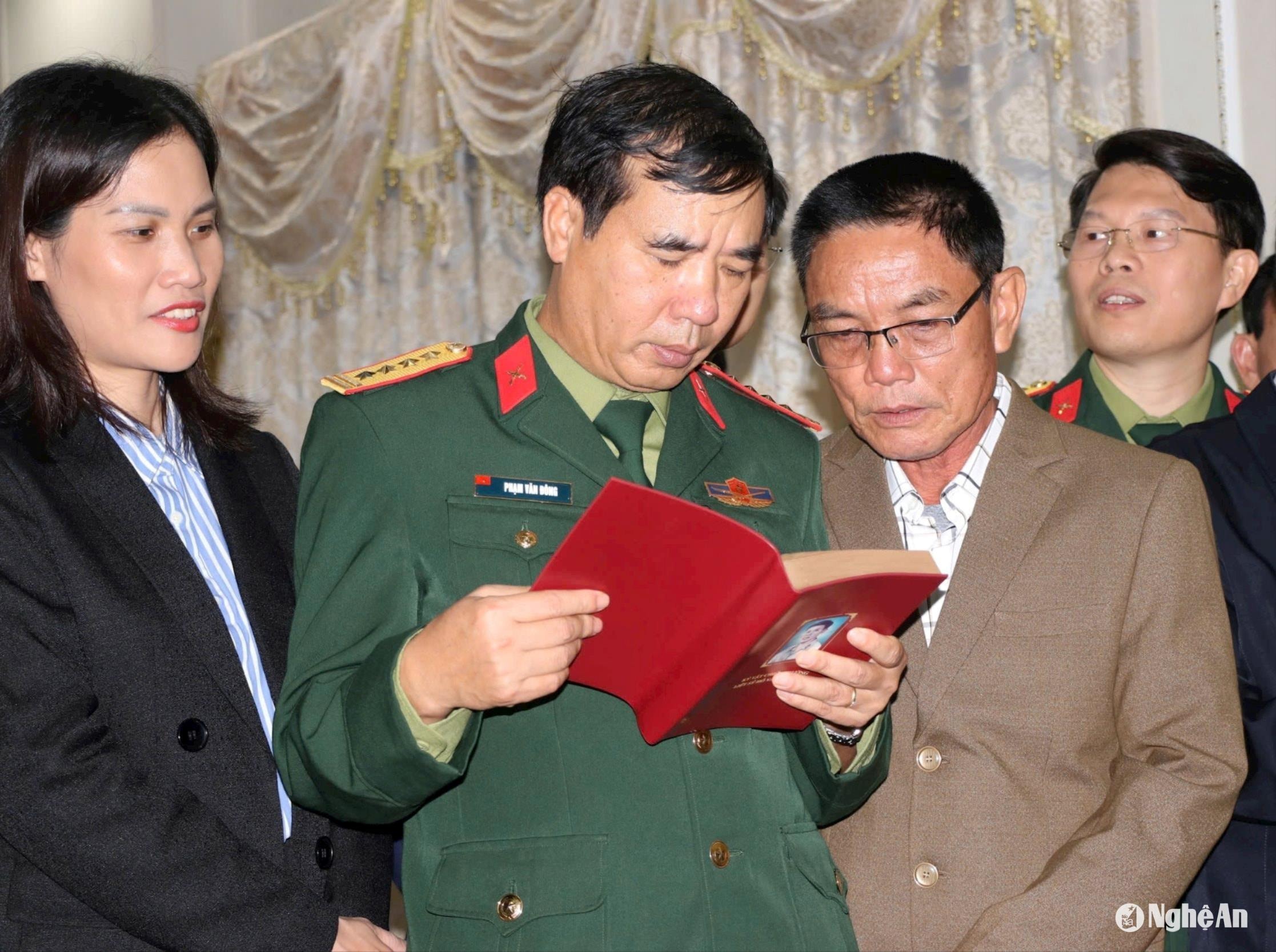
“I only heard from my uncles that once my father took me to the Bung bridge intersection to take a photo, but I have never seen that photo. My father’s diary is a priceless gift, helping us imagine him, his ideals in life, his years of fighting, his love for his wife and children, his family, his homeland and his country,” Mr. Hung confided.

Mr. Ho Van Hung also shared that when he brought the diary home, his mother kept holding it in her arms, flipping through it over and over again. Many of the diary pages were blurred and blurred because they were printed from photocopies taken more than 60 years ago, forcing Mr. Hung and his brothers to translate each word and pass it around to read their father's diary to their mother.
In the first pages, the diary of martyr Ho Van Chuong expresses his love and deep longing for his young wife in his hometown, mainly through poems, which may have been composed by him or copied from someone else, with simple, sincere, and honest words.
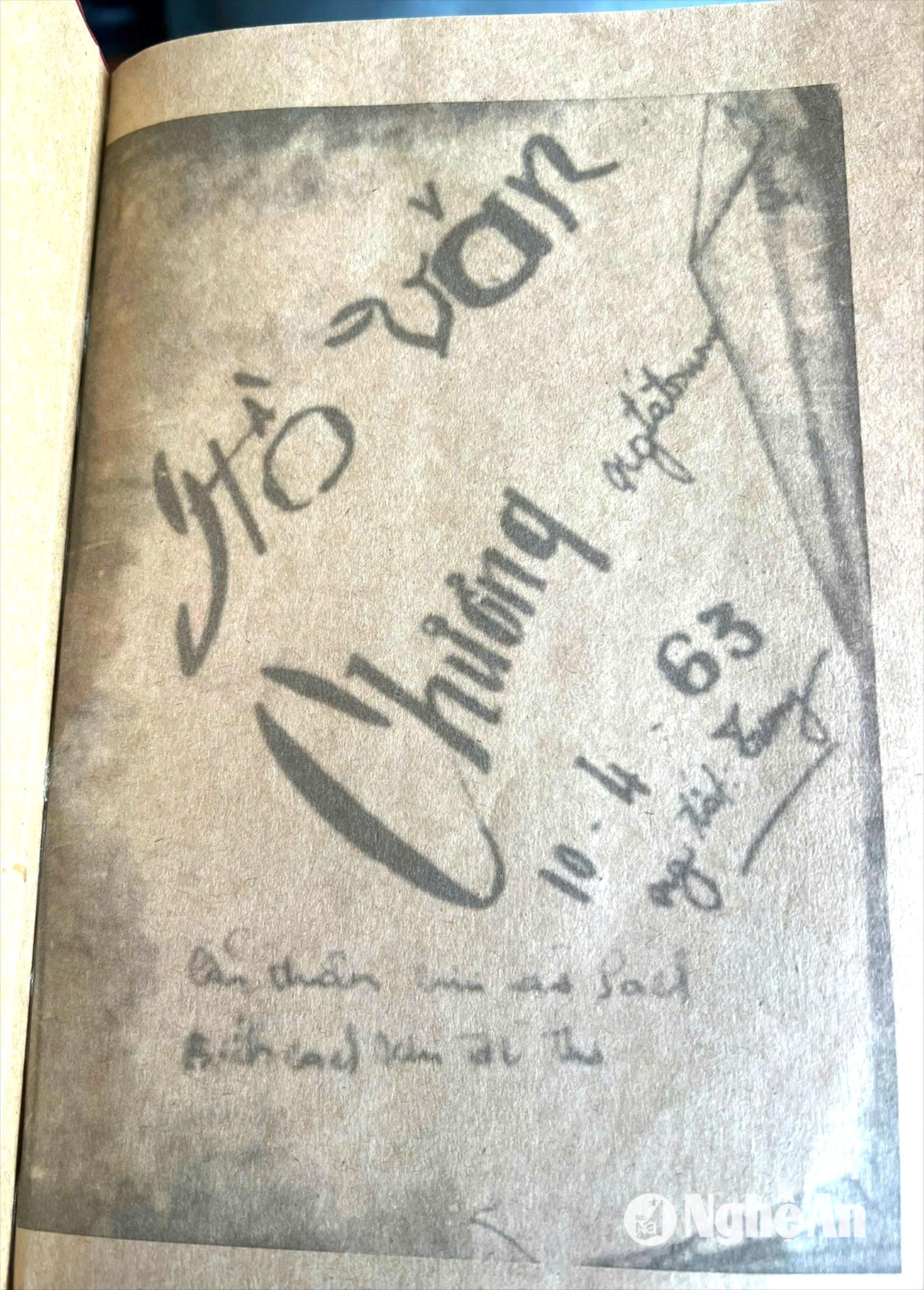
.jpg)
Sometimes it is a deep nostalgia in the cold winter nights: "I love you and miss you so much/ Your image is imprinted in me...”;“It’s late at night and I haven’t gone to sleep yet/ I hold my pen in my hand to confide in you/ on a cold winter night outside…”;Sometimes it is also a message from a soldier on the battlefield to his virtuous wife in the rear: "I send you my sweet love/ I advise you not to be sad/ I hope you keep our love…”;"My dear, you swore to love me forever and ever....”.
In some diary pages, the coastal soldier also signed below "Ho Van Chuong - one wife, two children" as a steadfast affirmation.
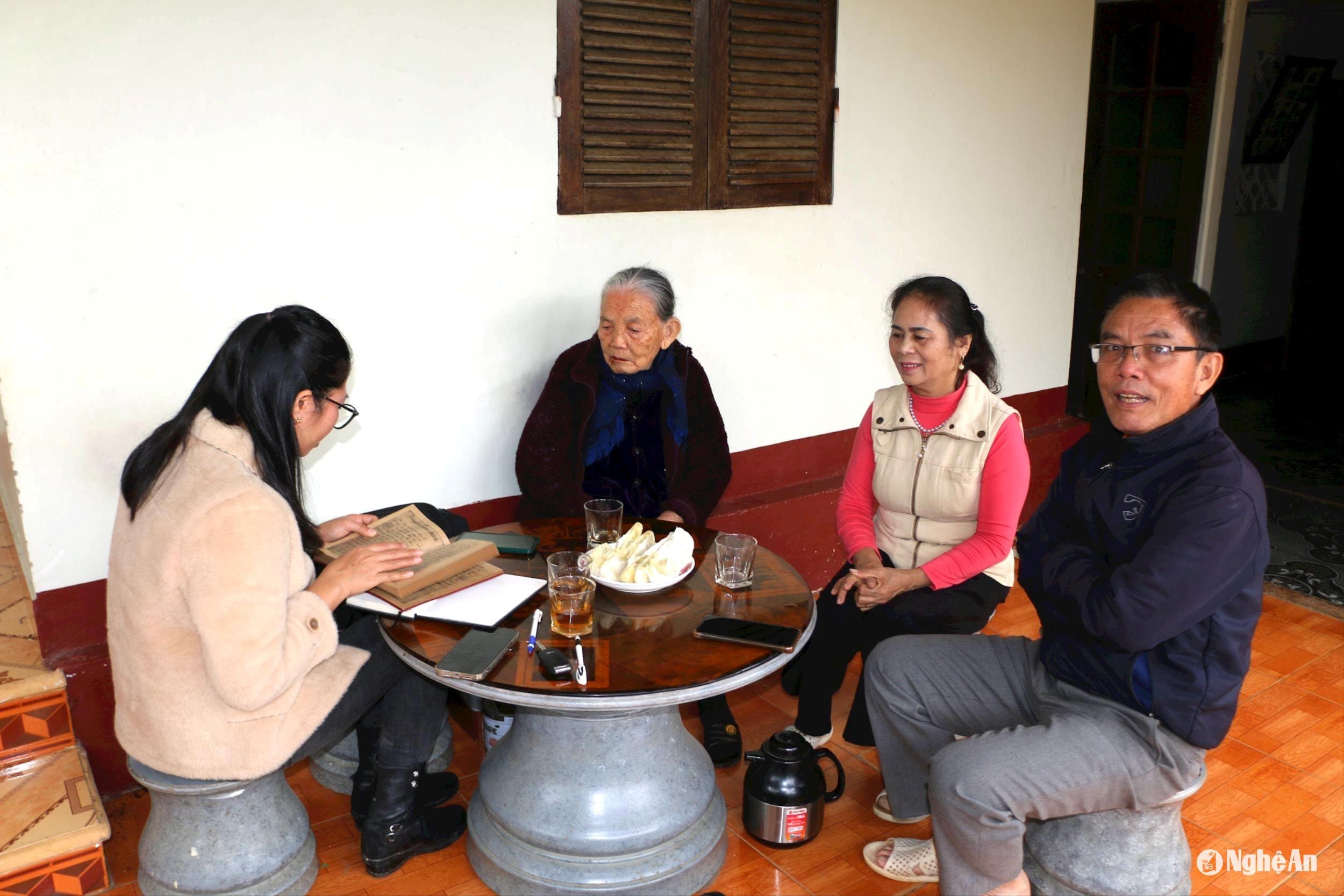
In addition to recording his own activities, his unit's activities, and river crossings from 1963 to 1966, the diary also mentioned many other topics such as mathematics, geometry, recording famous quotes of heroes and celebrities; recording many poems and revolutionary songs; there were also pages for studying Marxism-Leninism, learning foreign languages such as Chinese, Russian...
Through each page of the diary, coastal soldier Ho Van Chuong is shown to be studious, progressive, idealistic, responsible, but also very warm and emotional.
In a diary page, soldier Ho Van Chuong quoted a very famous saying of a writer, a hero of Czechoslovakia, as an engraving of a noble ideal.“I repeat once again: We have lived very lovingly. Because of loving life, we fight. And because of loving life, we will die...”.
.jpg)
.jpg)
The most touching thing in the diary of Nghe An soldier Ho Van Chuong is the image of a white dove flying in the free sky with the neatly written words "Peaceful Fatherland, happy family". That was probably the purpose, the dream, the motivation to take up arms and go to war of the soldiers of that period. They lived and fought for a simple but very sacred dream: "Peaceful Fatherland, happy family".
In the generations of soldiers who took up arms and went to battle to fight for that noble ideal, there were soldiers like martyr Ho Van Chuong who left without a return date. They fell for the "Peaceful Fatherland", leaving behind many sorrows for their relatives and families. Therefore, the return of relics such as the diary of martyr Ho Van Chuong has great spiritual meaning and value for the family, partly alleviating the pain and loss of the martyr's relatives.
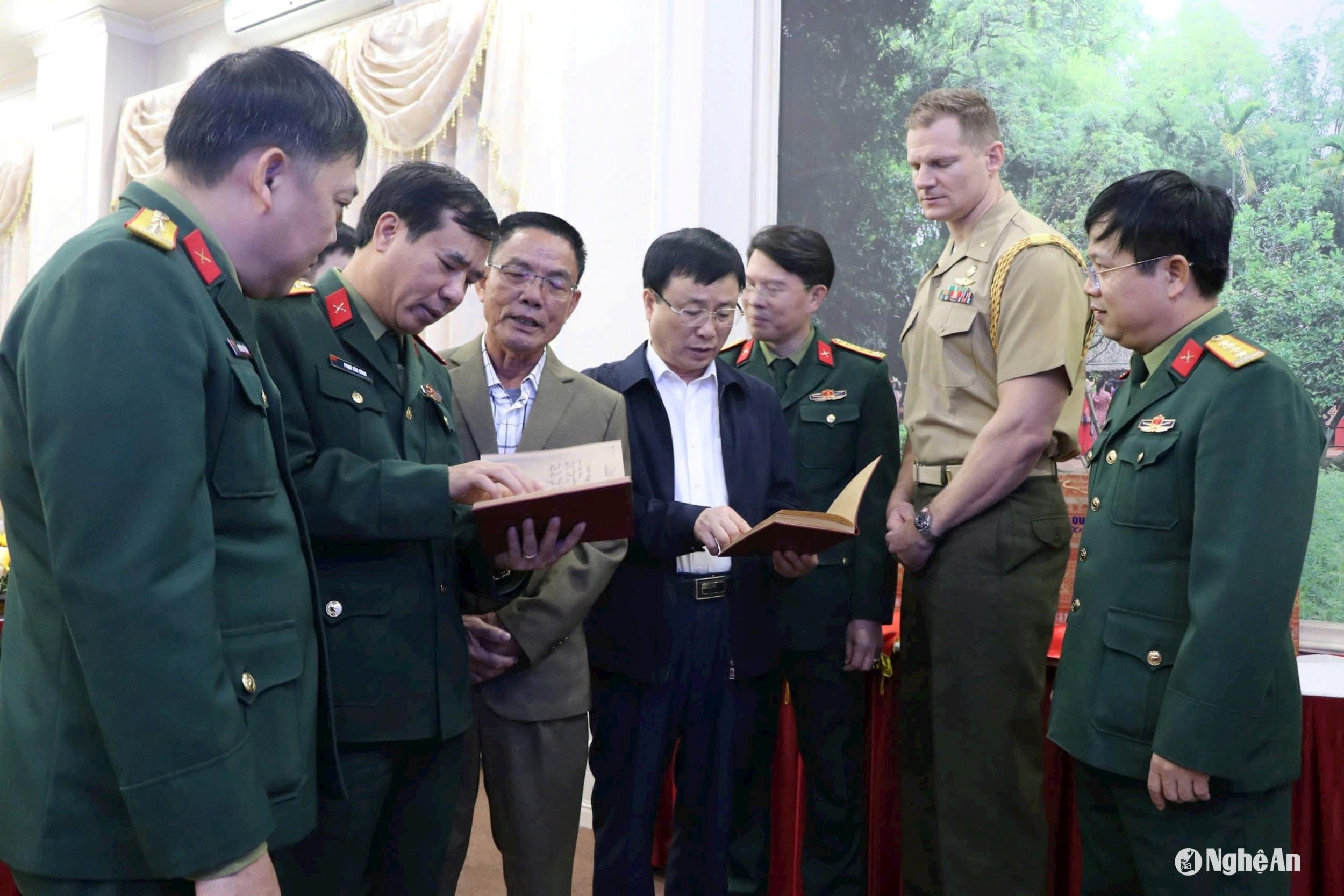
Speaking at the ceremony to hand over war relics provided by the United States to the martyrs' relatives, organized by the Office of the National Steering Committee for Searching, Collecting and Identifying Martyrs' Remains (Steering Committee 515) in Vinh City on December 11, 2024, Colonel Nguyen Ky Hong, Political Commissar of the Provincial Military Command, Deputy Head of the Standing Committee of Steering Committee 515 of Nghe An province, emphasized: Searching for and handing over war relics to the relatives and families of martyrs is the sentiment and sacred responsibility of the policy work force towards their comrades and relatives of martyrs.
.jpg)
“These relics have traveled halfway around the world, lost for decades before returning to their relatives and families… Bringing the relics of the martyrs back to their homeland and families will help them be closer to their loved ones, where they were born and raised, so that the relics can accompany the martyrs' relatives in their daily lives,” said Colonel Nguyen Ky Hong.
For martyrs' wives like Mrs. Bui Thi Loi, the return of the diary of her husband who died on the battlefield is a dream come true.
She shared that in the past, when her husband sent letters home, she had to ask someone to read them because she was illiterate. Therefore, even though she struggled to make a living and raise her children alone, she was determined to learn to read. Now that she is old and her eyesight is dim, she still looks through some pages or drawings that are still clear in her husband's diary; touching each page, she hopes to find a little warmth from the past...
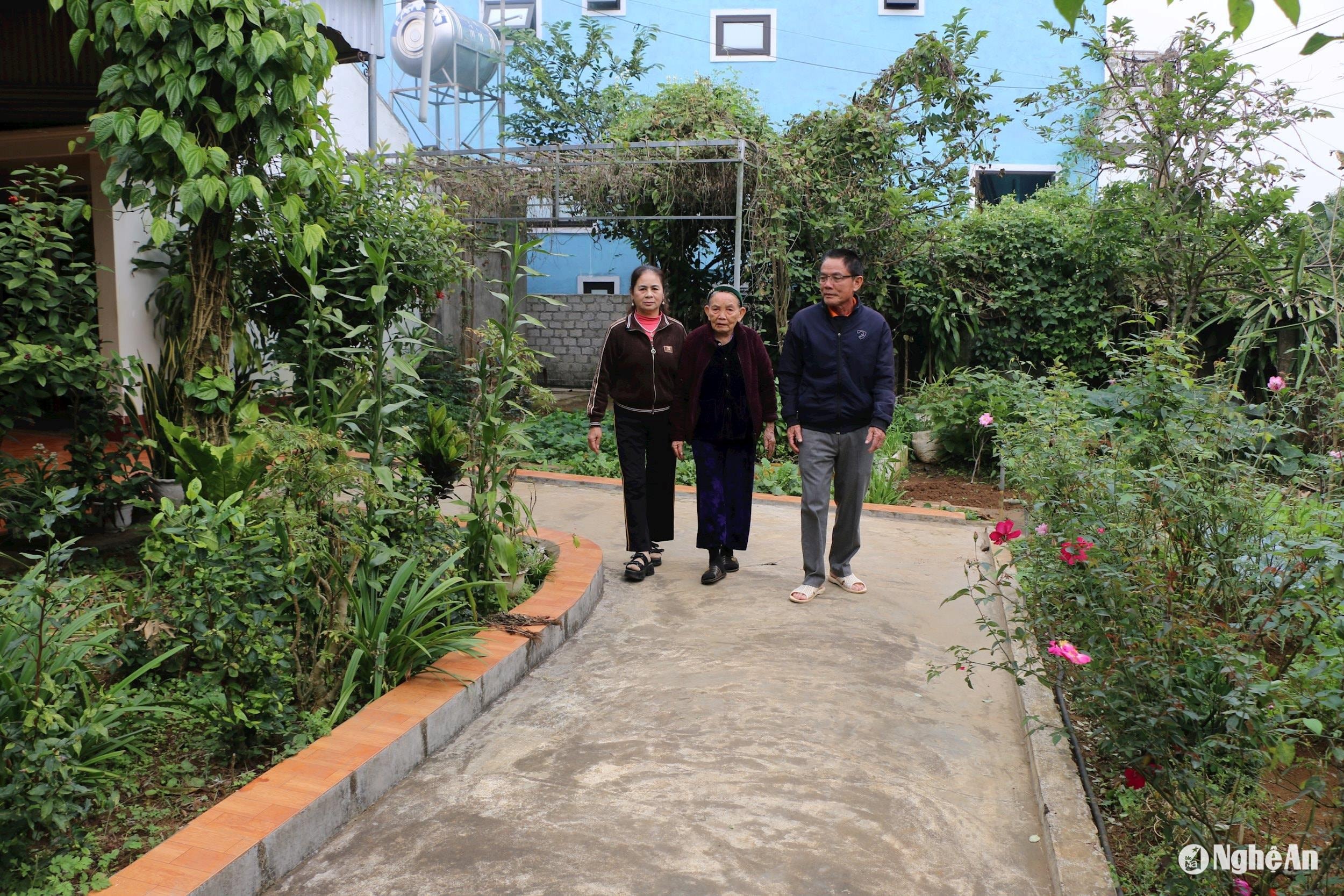
With her steadfast love and the great sacrifice of a wife and mother, Mrs. Loi has become a strong spiritual support and a shining example for her children and grandchildren to follow. She currently has a large family with sons, daughters-in-law, 5 grandchildren and 12 great-grandchildren.
In a conversation with us on a warm late winter day, Mrs. Loi shared that she had discussed with her children to keep the diary with the family for a while, then return it to the Military Region 4 Museum for better preservation and to spread the message of “Peaceful Fatherland, Happy Family” of martyr Ho Van Chuong for today and tomorrow…
